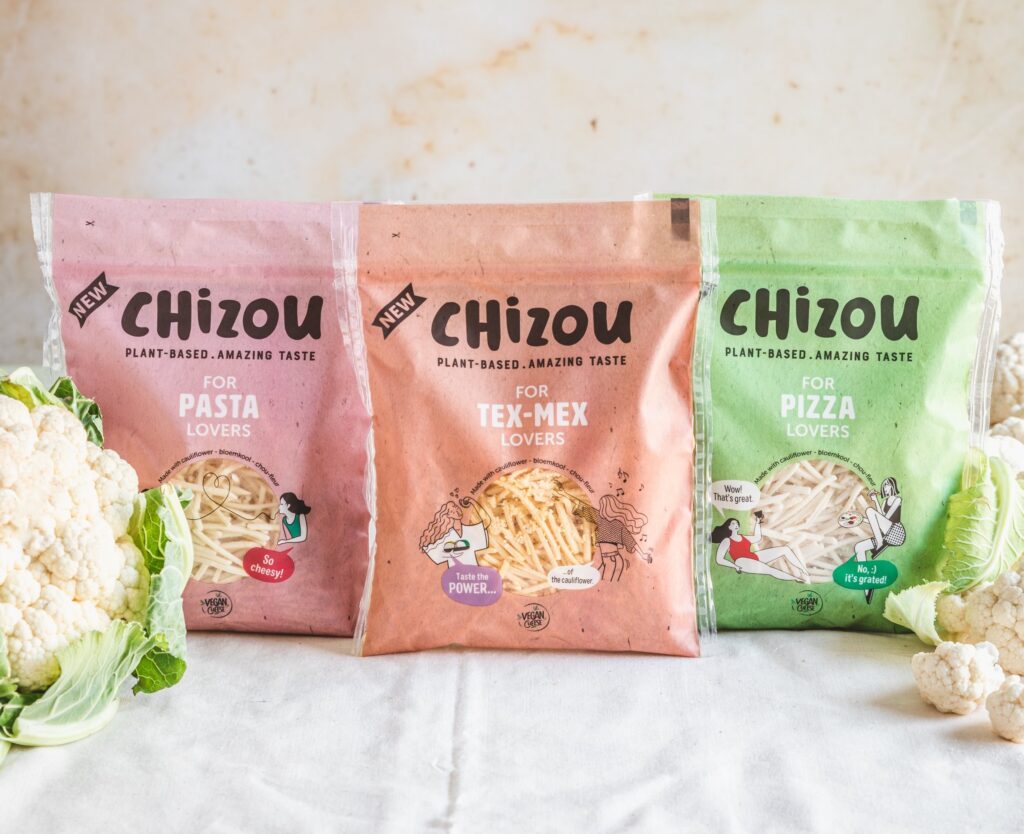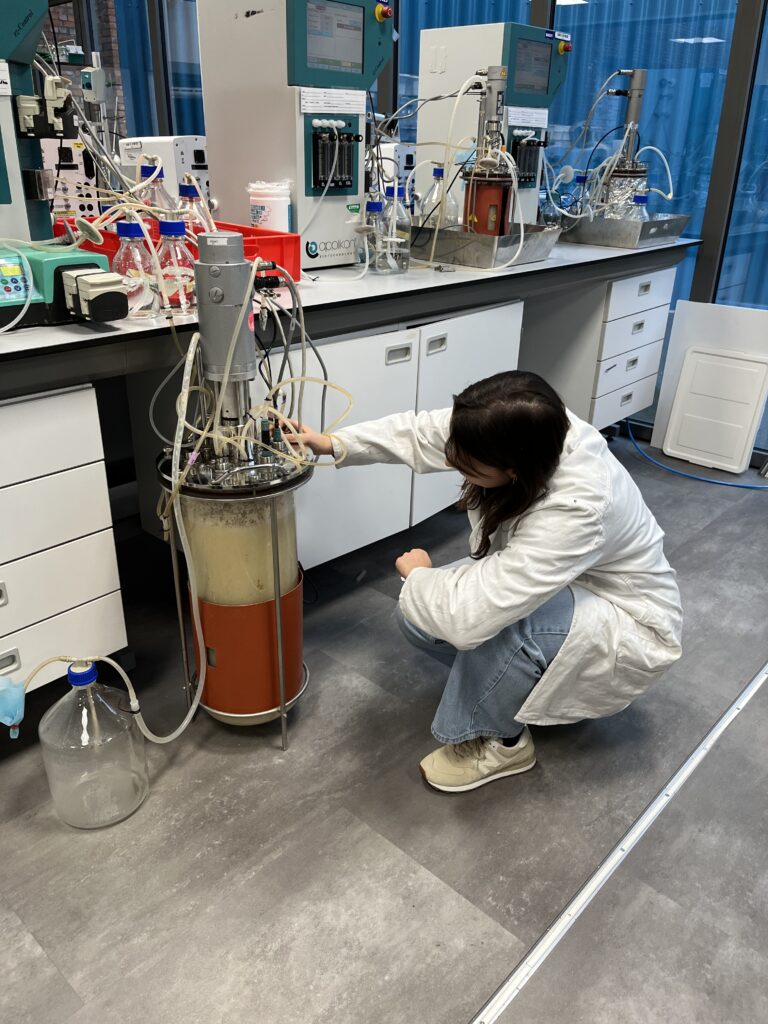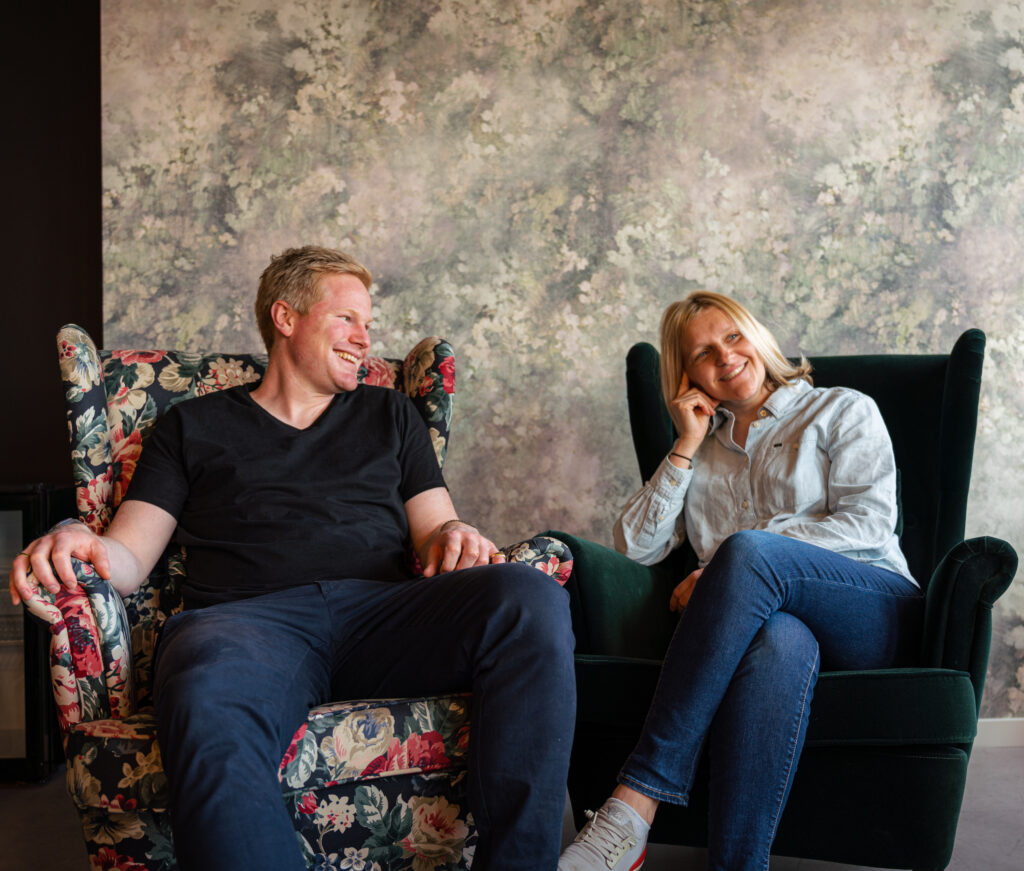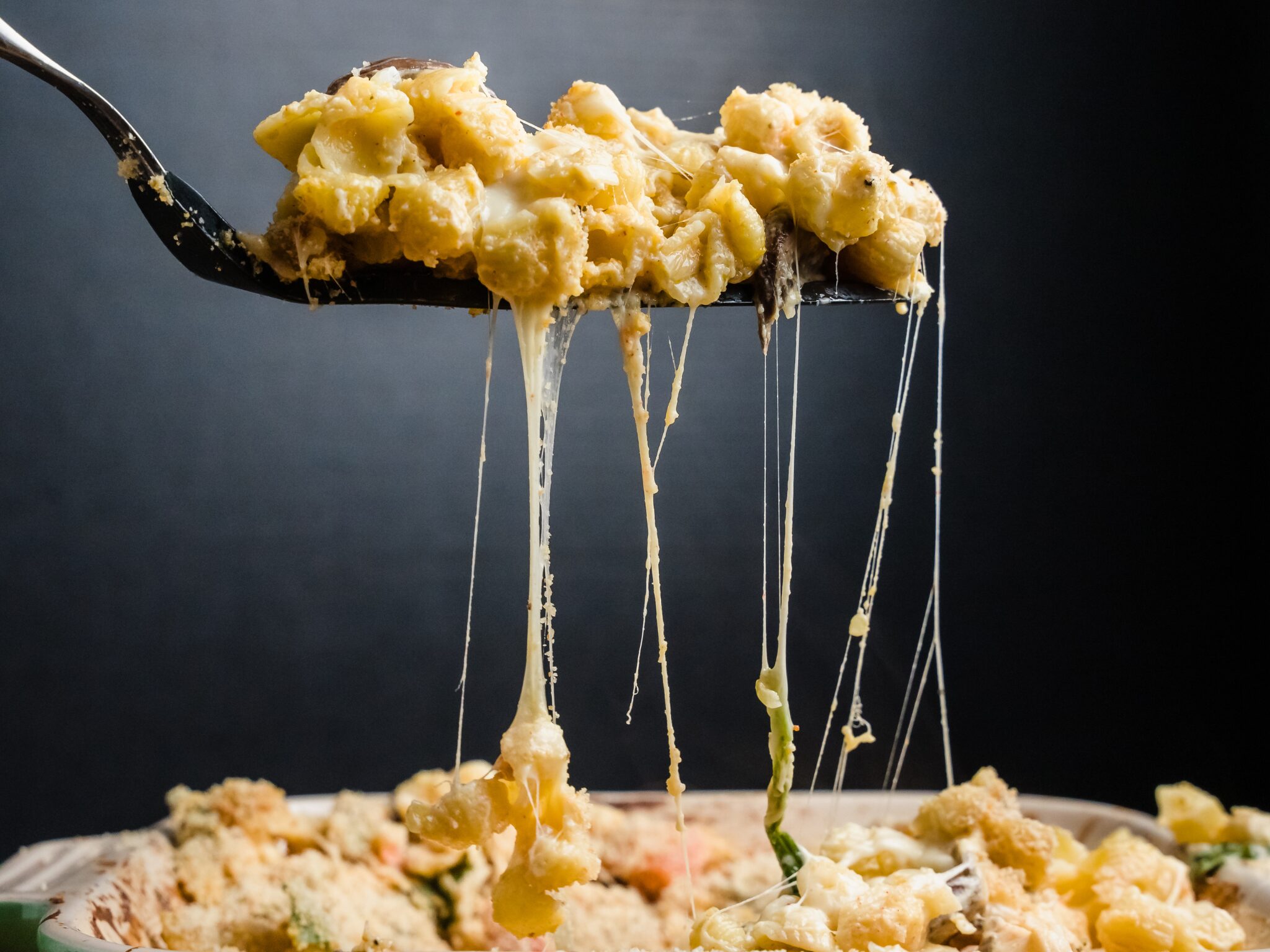Fungi in My Cheese: Bolder Foods Unveils Mycelium Ingredient for Umami-Packed Cheese Alternatives
6 Mins Read
Belgian food tech startup Bolder Foods has introduced MycoVeg, a functional mycelium ingredient that offers creamy and stretchy textures in non-dairy cheese. The biomass-fermented innovation is being trialled by dairy companies, and is set for a 2025 market launch.
Brussels-based Bolder Foods has announced the development of its newest alt-cheese innovation, MycoVeg. Made from mycelium, the functional ingredient leverages biomass fermentation to provide an end product with a smooth and stretchy mouthfeel and umami-packed punch.
The startup argues that existing toolkits for cheese manufacturers aren’t strong enough to truly meet consumer expectations around taste, texture and price on a mainstream level. To address that pain point, Bolder Foods has created a semi-finished product that can be used as a bulk ingredient, combining mycelium with plant-based elements to deliver better dairy-free cheese products.
“We’re not making end products ourselves – we sell MycoVeg to cheese manufacturers and dairy companies to make end consumer products,” Bolder Foods co-founder and CEO Ilana Taub tells Green Queen. “That said, MycoVeg enables the creation of clean-label and deliciously creamy soft, semi-hard and fresh cheeses (think brie, camembert, gouda, cheddar, mozzarella).”
Harnessing mycelium’s nutritional and functional prowess

Founded in 2020 by Taub and COO Michael Minch-Dixon, Bolder Foods specifically works on innovative cheese alternatives. Its first product line, Chizou, is a plant-based grated range made from cauliflower and chickpea protein, which is said to melt and brown like conventional cheese.
In 2021, the startup began focusing its attention on mycelium, an increasingly popular ingredient in the alternative protein space, owing to its nutritional, environmental and functional benefits. A study published in the Journal of Agricultural and Food Chemistry last December suggested that the mushroom root is rich in fibre and low in fat, alongside 20-30% of protein content in dry matter, which provides all the necessary amino acids. It’s also a source of essential micronutrients like iron, zinc and vitamin B12, which are typically found in animal-sourced foods.
Plus, a three-week early intervention trial found that 190g of mycelium per day can lower LDL cholesterol by 21% on average versus animal protein. And the fungi can sequester carbon (with certain strains able to store 70% more carbon in soil), some of which can be broken down into carbohydrates that act as nutrients for the soil.
The research focused on the flavour potential of mycelium in the context of meat alternatives, but found that foods made from mycelium usually exhibit bland or only slightly mushroom-like flavour profiles, which can be enhanced by spices and seasonings. Additionally, it’s possible to develop ‘in-process’ flavours through biochemistry and flavour chemistry, with different mushroom species able to produce various taste profiles, such as the aroma of beef bullion, curry or maple syrup, or the flavour and texture of chicken – the same can be applied to cheese too.
To produce its mycelium ingredient, Bolder Foods uses a naturally occurring, non-GM strain of fungi. “Our technology is based on biomass fermentation through a process that combines fungi and vegetable substrates. It’s a simple liquid fermentation process with minimal downstream processing, and the resulting product (MycoVeg) consists of a unique combination of biomass and fermented vegetables,” explains Taub.
The startup has created some prototype products to showcase the potential of its tech, using a mix of standard cheesemaking equipment and cheese alternative recipes.
Targeting taste and texture with mycelium

Taub argues that current manufacturing methods don’t allow cheese producers to create alternatives that have mass appeal. “Plant-based analogues made from coconut oil and starch have improved a lot in recent years, but they’re still quite average and nutritionally poor,” she suggests. “Nut-based analogues create an improved consumer experience, but they’re extremely expensive so again, can’t appeal to a wide group of consumers.”
She adds that all the dairy companies Bolder Foods has spoken to are looking for new approaches and technologies to solve this problem: “MycoVeg helps create delicious, unctuous alternatives with smaller (clean-label) ingredient lists, which do not require gelling agents or modified starches (such as currently present in many alternatives).”
The startup has described its ingredient as capable of having a spectrum of flavours, spanning neutral all the way to strong umami notes, as well as a texture that is creamy and elastic. In conventional cheese, the meltability and stretchability come from casein, which makes up 80% of the protein content found in dairy. Taub notes that while many companies are working on developing recombinant casein – such as Standing Ovation, Eden Brew, New Culture, Fermify and Zero Cow Factory – that is not the approach Bolder Foods is taking.
“Developing synthetic dairy proteins (such as casein) is part of the solution, but not all of it, as dairy and cheese [are] made up of much more than just protein,” she says. “With our unique approach, we’re able to create elasticity and bite that resembles dairy cheeses. Ultimately, when recombinant casein is available to the market, we see MycoVeg as the perfect ‘host’ for these proteins.”
It’s an important aspect to nail, given that taste and texture have long been the bane of non-dairy cheese. If you were to use Americans as a gauge, a study leveraging Kroger data from 60 million US households found that 73% of consumers are unhappy with the flavour (“plastic” or “unnatural”) and texture (“grainy”) of vegan cheese. They want cheeses that taste better, melt well and have a creamy mouthfeel – aspects that Bolder Foods has highlighted.
Teaming up with dairy companies with a targeted 2025 launch

Currently, MycoVeg remains in the R&D stage. “Our projected costs allow the development of end consumer products that are affordable (not premium). Our yield, fermentation time and minimal downstream processing mean all speak to favourable unit economics enabling significant inclusion rates and attractive overall ingredient costs,” says Taub.
“We’ve started our first trials with dairy companies,” she adds. “Once these trials are over, we’ll start scaling our fermentation process to reach commercial scale. We anticipate first sales of products made with MycoVeg to happen in 2025 on a small scale, and 2026 on a full commercial scale.”
A 2020 survey revealed that Belgium (alongside the UK) represented the highest penetration rate for vegan cheese in Europe (67%). Since then, the market has expanded, with a 27% rise in value from 2021-22 – thrice more than conventional cheese in the country. Unit sales for plant-based cheese also grew by 30%, just as its dairy counterpart saw sales drop by 4%. Still, vegan alternatives only represent 0.1% of the total Belgian cheese market, indicating that there’s a long way to go.
Bolder Foods has raised about €1.5M ($1.63M) in investment so far, and is currently fundraising. “We’re in discussions with several VCs and funds, but there is still room for more investors,” says Taub, who will hope to eventually become a leader in the $2.85B mycelium market.




